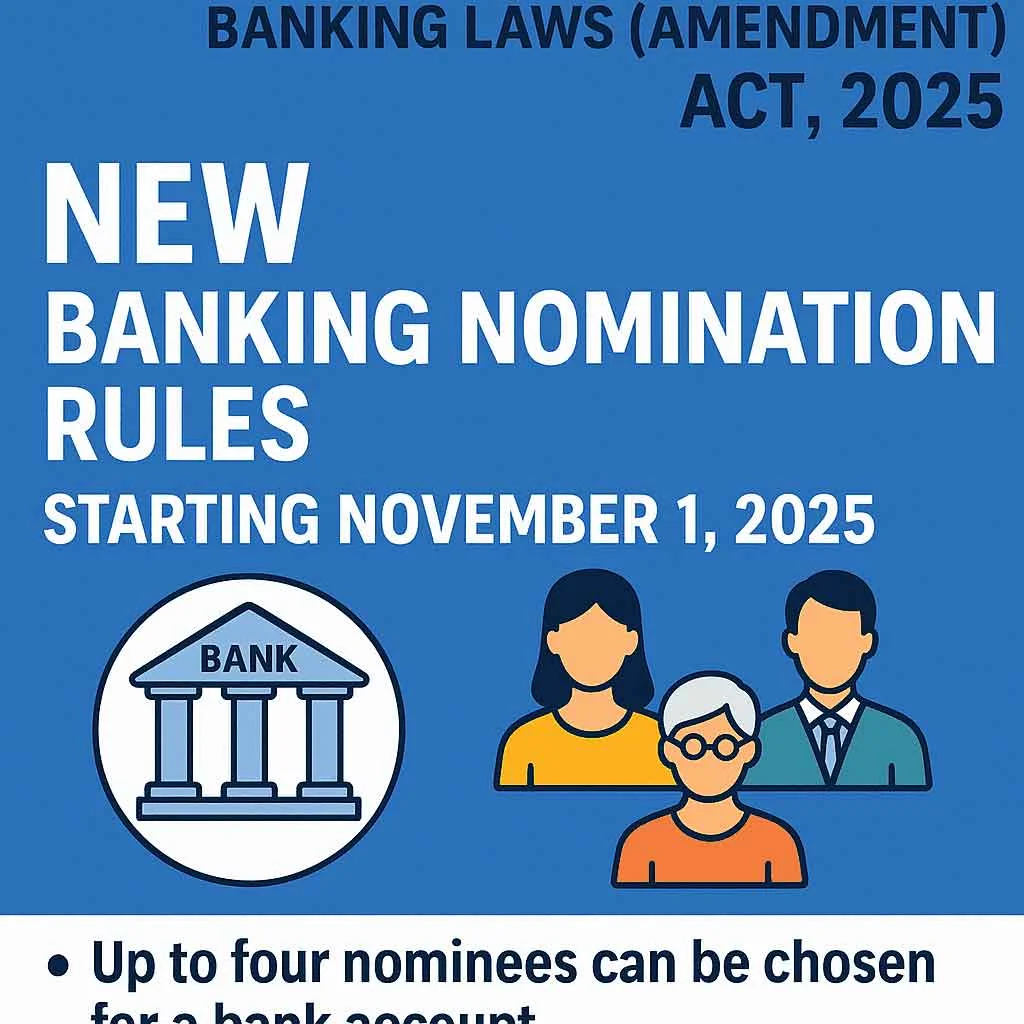Starting November 1, 2025, bank customers will be able to choose up to four nominees for their bank accounts. This change is part of the Banking Laws (Amendment) Act, 2025, which was announced by the finance ministry on Thursday. The goal of this new provision is to make the process of claiming assets after a depositor's death smoother and more efficient across the banking system.
The Banking Laws (Amendment) Act, 2025, was officially notified on April 15, 2025, and includes 19 changes across five key banking laws, including the Reserve Bank of India Act and the Banking Regulation Act.
According to the new rules, customers can choose up to four nominees, either all at once or in stages. This flexibility will make it easier to distribute the account holder’s assets among the chosen people after their death. For instance, you can assign a specific percentage or share of the account’s total to each nominee, making sure the total adds up to 100%.
If a customer also has items in safe custody or safety lockers at the bank, they can nominate up to four people for those as well, but only in a "successive" order (meaning the next nominee only steps in if the one before them passes away). This ensures a clear and orderly transfer of assets.
The Banking Laws (Amendment) Act, 2025 also introduces a system that aims to bring uniformity, transparency, and efficiency to how banks handle claims. It gives customers the ability to make nominations in a way that works best for them, while making sure the process is clear and smooth for everyone involved.
New rules for how to make or cancel nominations, or specify multiple nominees, will be released soon to help banks follow these changes consistently.
The amendment also aims to improve banking governance, make bank reporting more consistent, protect depositors and investors better, and raise the quality of audits in public sector banks. One significant change is allowing public sector banks to send unclaimed shares, interest, and bond redemption amounts to the Investor Education and Protection Fund (IEPF), similar to how it’s done under the Companies Act.
Additionally, the amendment gives cooperative banks more flexibility by extending the maximum tenure for non-executive directors (except the chairperson) from 8 years to 10 years, in line with changes in the Constitution.
Overall, these changes are meant to make banking services more customer-friendly and secure.







No comments yet. Be the first!